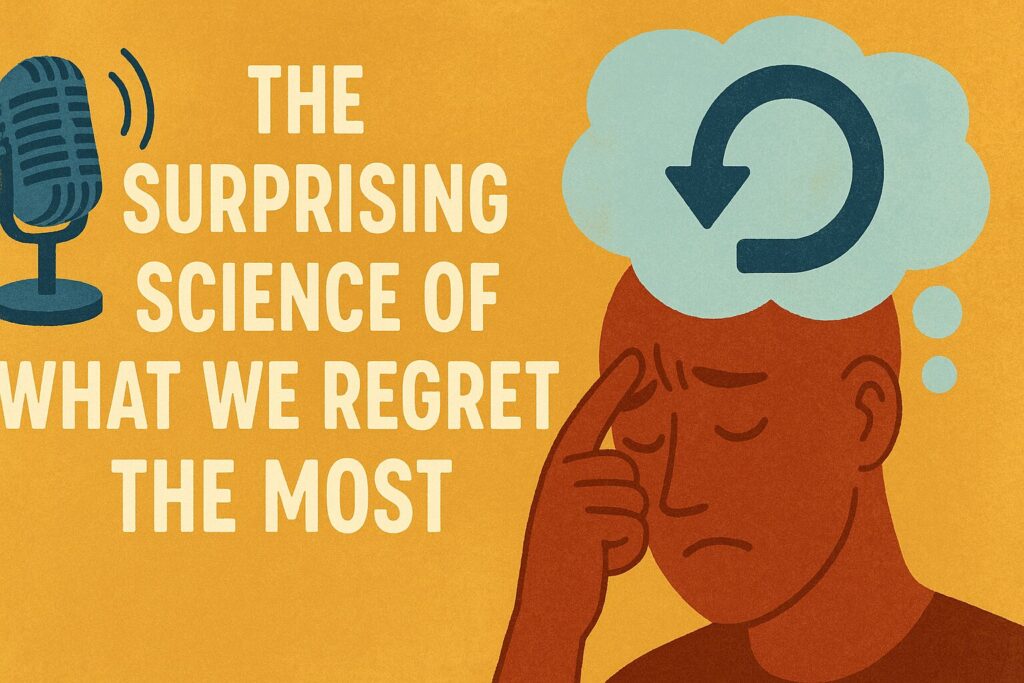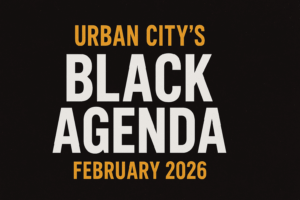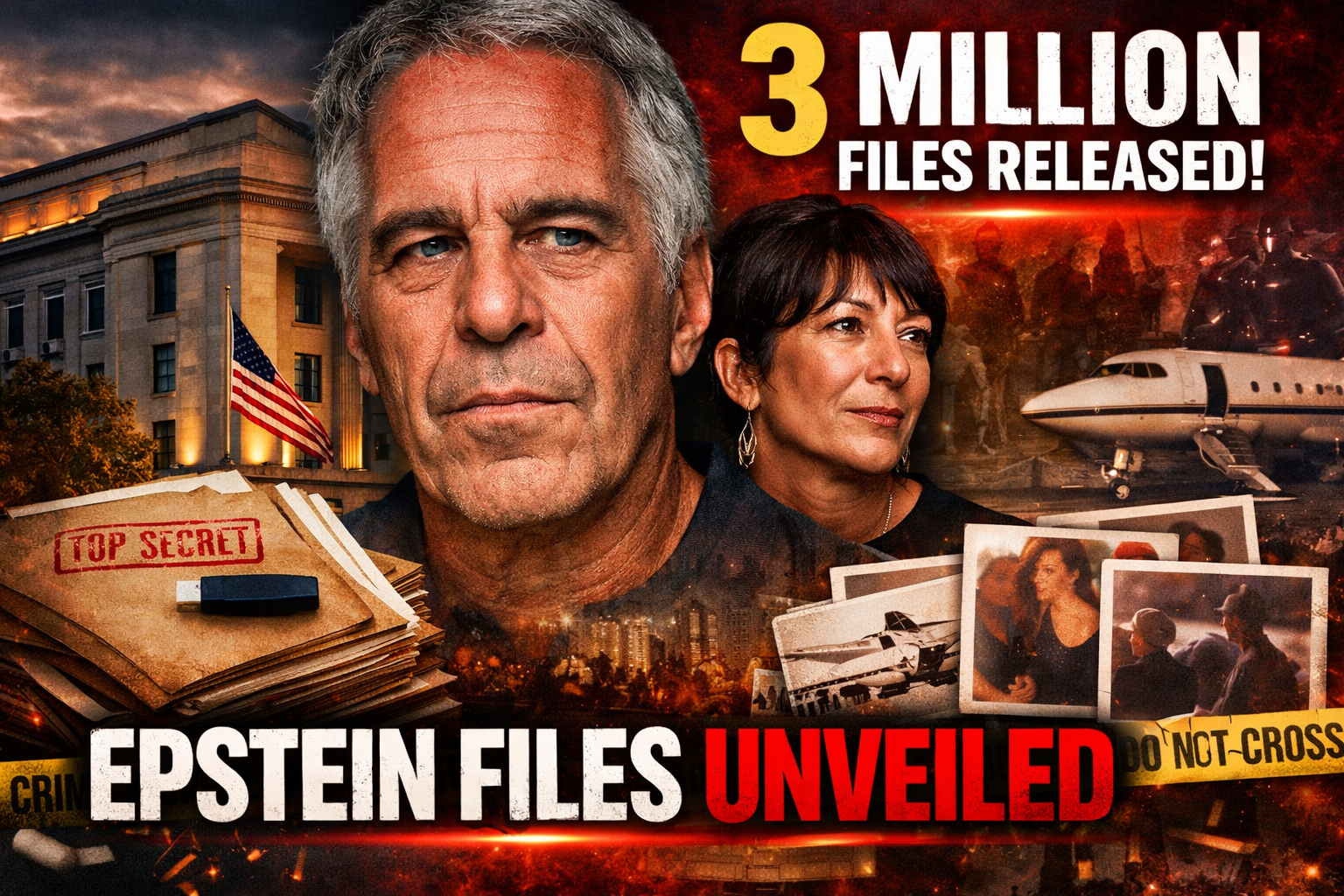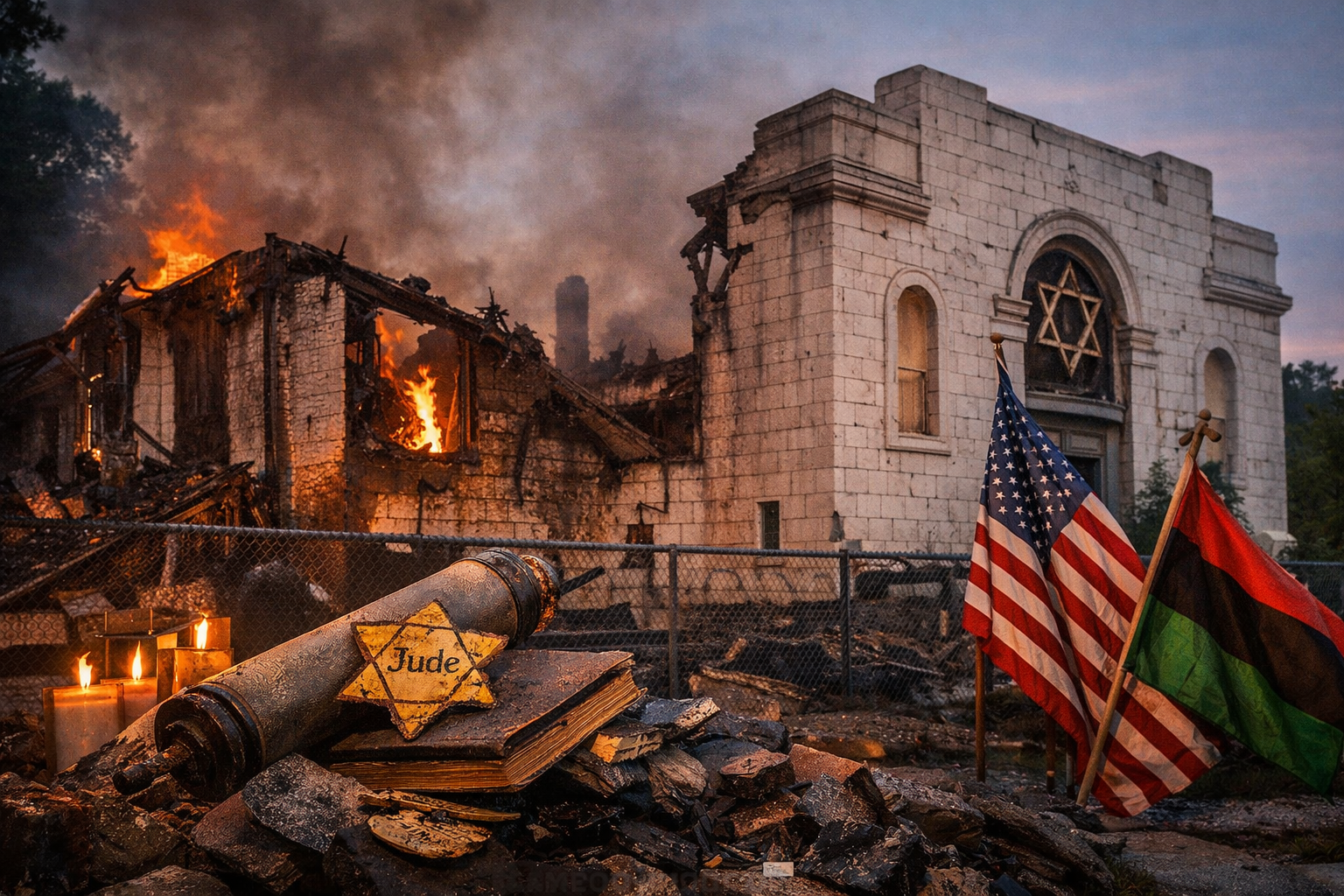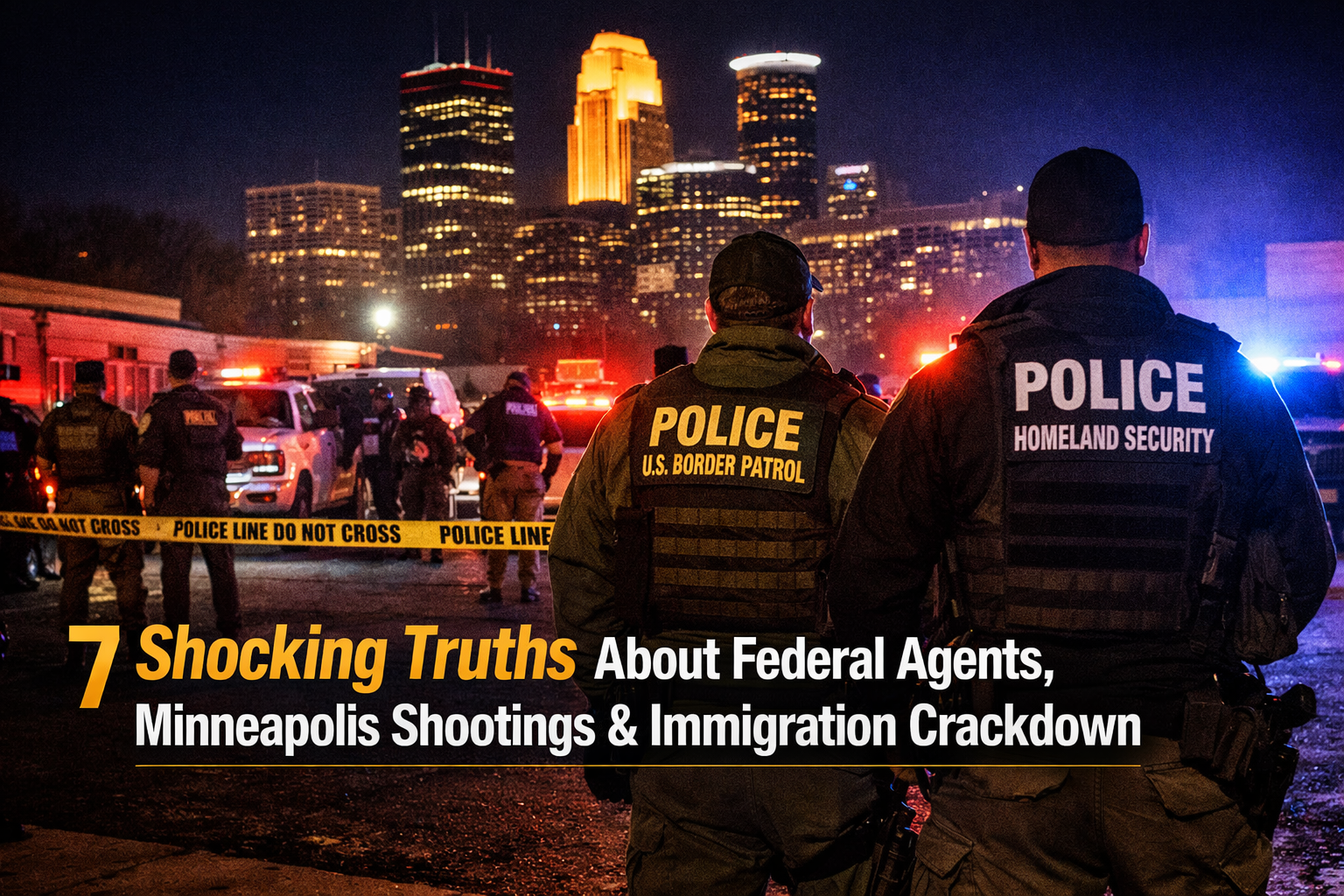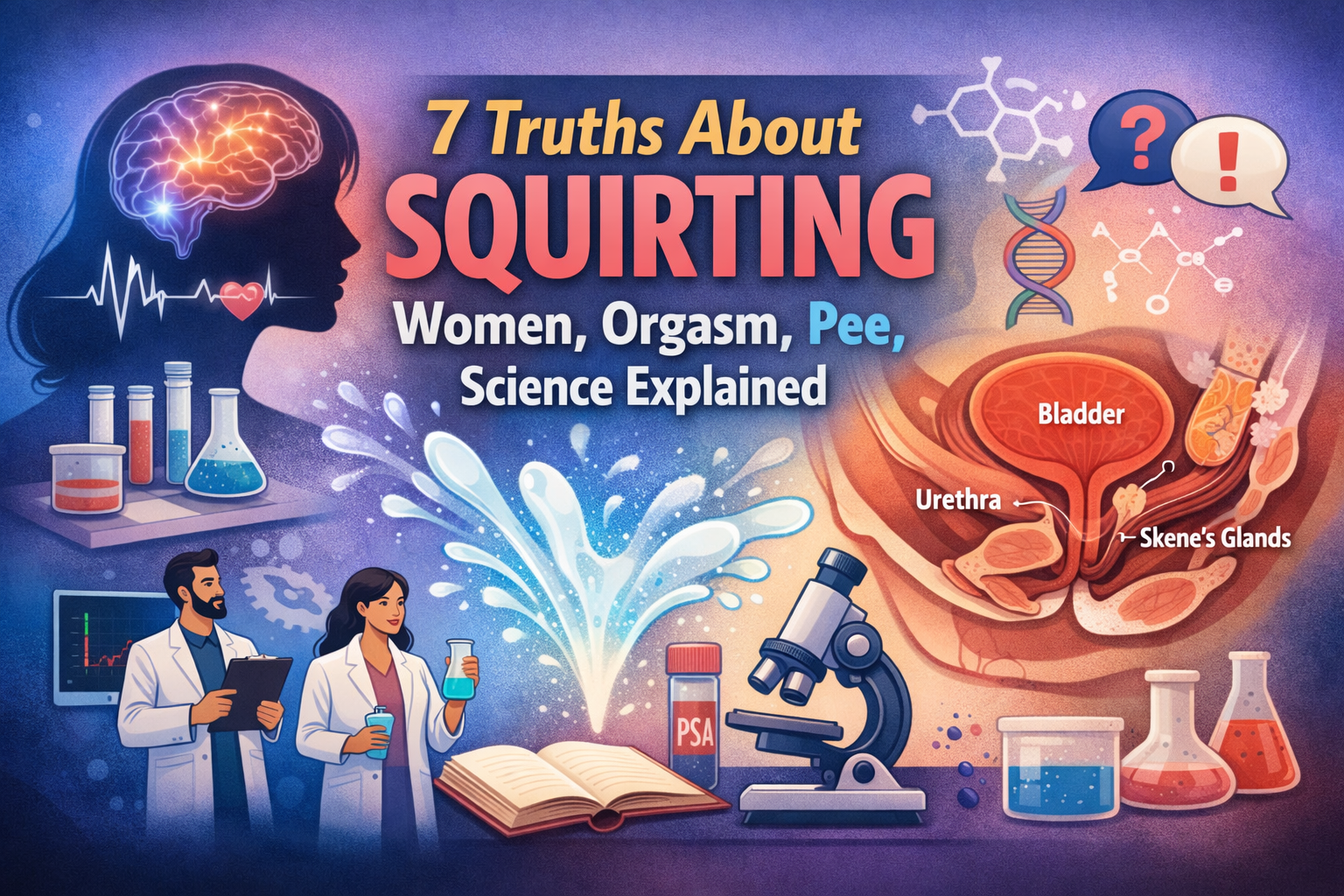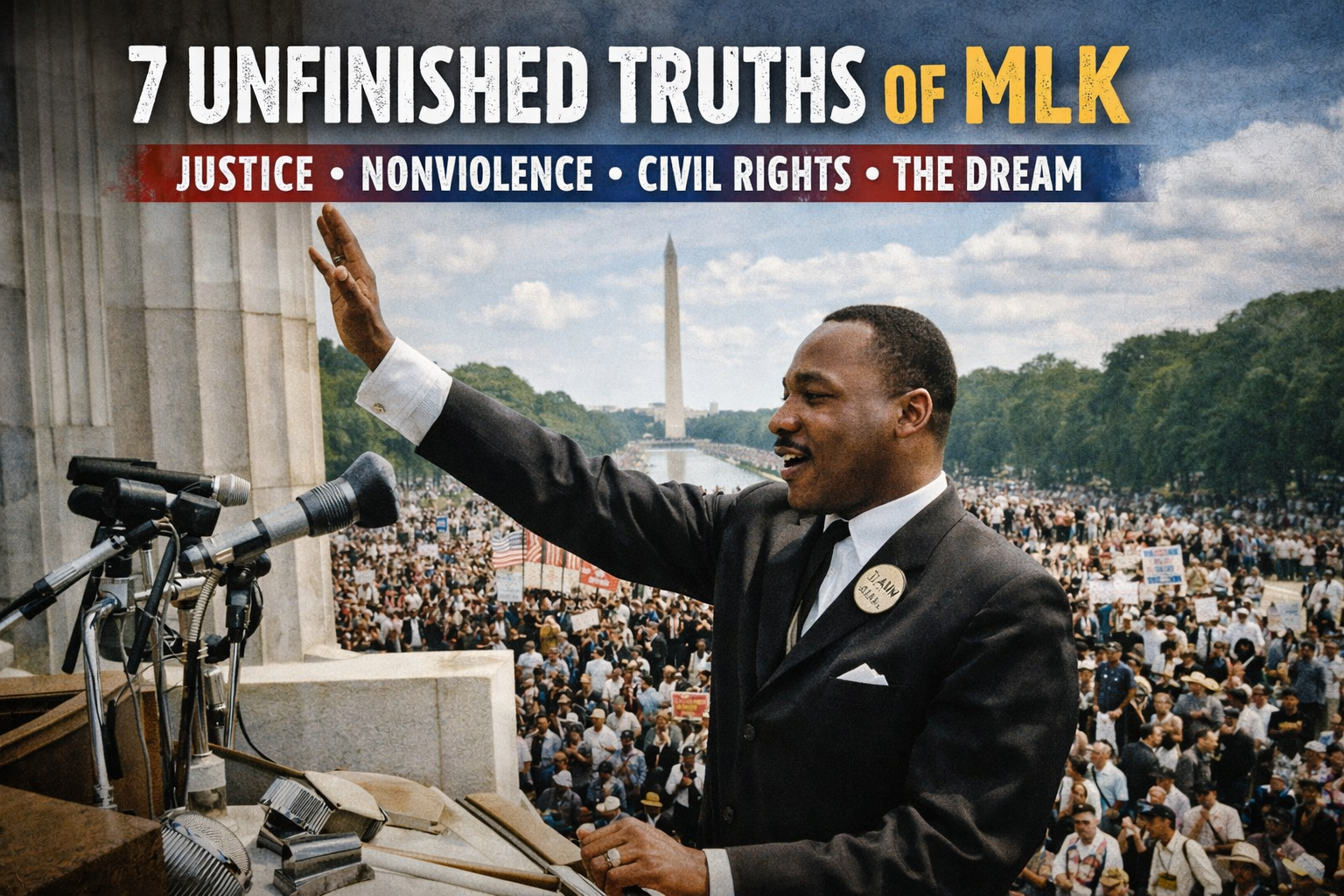This week on Viewpoint. She did recall one time seeing a beautiful apple down in the cellar and she took it and ate it and just received a terrible beating as a result. The traumatic legacy of Indian boarding schools.
Then. The only people who don’t have regrets are five-year-olds, people with brain damage and sociopaths. The rest of us have regrets.
Understanding the gut-wrenching feeling of regret. I’m Marty Peterson. And I’m Gary Price.
These stories in-depth this week on your Public Affairs magazine, Viewpoints. If you love to travel, Capital One has a rewards credit card that’s perfect for you. With the Capital One Venture X card, you earn unlimited double miles on everything you buy.
Plus, you get premium benefits at a collection of luxury hotels when you book on Capital One Travel. And with Venture X, you get access to over 1,000 airport lounges worldwide. Open up a world of travel possibilities with the Capital One Venture X card.
What’s in your wallet? Terms apply. Lounge access is subject to change. See CapitalOne.com for details.
Well, these polymers aren’t as flexible as batch K3. Researcher Laurie is stretched thin. Did you get the vulcanization analytics from V66? Wait, are these rubber scores from last week? She needs to hire new lab technicians so she can bounce back into her old self.
I need Indeed. Indeed you do. Our matching platform lets you spend less time searching and more time connecting with candidates.
Redeem your $75 credit at Indeed.com slash credit. Terms and conditions apply. Ethnic cleansing is often seen as a tragedy that happens far from American soil.
Massacres like the Holocaust, the Rwandan genocide, or the ongoing Rohingya crisis in Myanmar. We Americans might shake our heads and point fingers at these countries, but we’re not immune to these atrocities. In the late 1800s, thousands of Native American children, some as young as five years old, were taken from their homes and forced into boarding schools.
Not only were they separated from their parents and tribes, but they were stripped of their native identities and languages. And this wasn’t just about assimilation. It was an organized attempt to systematically erase indigenous culture.
It was considered sort of a bloodless response to the quote-unquote Indian problem in the United States, which was their interference with westward expansion. And the thought was through various assimilative policies that that would make it easier, and that is to take away their heritage and their language. That’s Marianette Pember, a citizen of the Red Cliff Ojibwe tribe and a national correspondent for ICT News, formerly known as Indian Country Today.
She’s also the author of Medicine River, A Story of Survival and the Legacy of Indian Boarding Schools. In her book, she uncovers how these schools were the first step of a larger plan. Sending Native students to boarding schools was preceded by other far-reaching assimilationist policies like Indian removal from their lands and allotment, which was the goal was to create private land owners.
And what it ended up doing was really separating Native peoples from their ability to survive and feed their families and arguably, you know, had a greater impact than any of the other assimilationist policies. The boarding school policy wasn’t a blip in history. It lasted for 150 years.
Together, the federal government and the Catholic Church ran over 400 of these schools across the country and housed tens of thousands of Native children. Official reports estimate that about a thousand children died and were buried on school grounds. However, Pember and other Native Americans argue that this number is far larger, pushing into the tens of thousands.
The common causes for death were starvation, tuberculosis, and broken hearts. One of the first federal boarding schools was the Carlisle Indian Industrial School in Pennsylvania. Former Civil War Lieutenant Richard Henry Pratt founded it in 1879.
His motto was, kill the Indian in him and save the man. This principle was adopted across the entire boarding school system. The barbaric practices of this system resulted in long-lasting generational trauma that still has an effect today.
Pember’s mother, Bernice, entered an Indian boarding school at age five. My mother would tell me about her life at the boarding school on the Bad River Reservation in Wisconsin. And the school was St. Mary’s Catholic Indian Boarding School that was run by a Franciscan order of nuns called the Sisters of Perpetual Adoration.
And people in the reservation called it the Sister School. My mother told me the Sister School stories from my earliest memory and always somehow embedded in the telling was the expectation that I would write about it and I would tell the world about her experience and, you know, as a path towards redemption. The children spent their days doing chores and were typically given very little to eat.
Pember says her mother recalls always being hungry. My mother often told me about the Mother Superior, Sister Catherine, who was pretty brutal in her discipline. And she did recall one time seeing a beautiful apple down in the cellar and she took it and ate it and just received a terrible beating as a result.
But Sister Catherine was uniquely brutal in her discipline of the children and the kids really feared her and hated her. And my mother would often tell me a story about one Christmas season when Mother Superior, Sister Catherine, fell down the cellar steps and basically, you know, hit her head and died. And she would say to me, oh, what a secret cheer us children did.
It was the best Christmas gift we ever got. Growing up, Pember never knew whether these family stories were completely true. Now, as an investigative reporter, she spent many hours verifying these firsthand accounts.
To do so, she traveled to the Archival Library at Marquette University in Milwaukee, Wisconsin, where many of these records live. I was looking at the records for St. Mary’s Indian Boarding School and I happened upon an administrative correspondence between the sister secretary of St. Mary’s School and the commissioner at the Bureau of Indian Affairs and rather, I’m sorry, at the Bureau of Catholic Indian Missions in Washington, D.C. And the letter to the commissioner says, well, you know, by the time you receive this letter, our sister will, Catherine will likely have met her maker. The letter continued with details of Sister Catherine’s death, the same story Pember heard from her mother.
So I was alone in this big reading room at Marquette University at the Rainer Collection and I stood straight up out of my chair when I read that. You know, it was kind of like my family’s personal smoking gun, validating everything I’d been told as a child. Looking back, Pember’s own childhood was scarred from the trauma her mom endured as a child.
Her mom had severe depression and often wasn’t present and available to be the parent she needed. It wasn’t until she was older that this anger turned into understanding and forgiveness. Another big moment of forgiveness was last October when former President Joe Biden formally apologized for the U.S. government’s role in the Indian boarding school system.
His apology was straight up, you know, as the president of the United States, he apologized. But since I was kind of looking at some other stuff and noticed that the link to that apology on the White House website is gone. And I did inquire among several agencies, you know, what’s up with this apology? Are you guys like not sorry anymore? What do you have to say about it? And I didn’t get any response from anybody.
And I contacted several people within the White House, President Trump’s press folks, the Bureau of Indian Affairs, the Department of the Interior. I even reached out to the Office of Army Cemeteries, which oversees Carlisle. Pember says that despite the removal of the U.S. government’s apology from the White House website, nothing can erase what Biden’s words meant to her people.
I think for Native folks, you know, they heard the apology. It was a sincere apology from President Biden. At least President Trump has not officially stood up and taken it back.
It’s just sort of gone, you know, in this Orwellian kind of method that he seems to be operating his presidency. But I think that people still we still see it as an apology. And I think people are going forward with that thought.
Today, there’s the National Native American Boarding School Healing Coalition, a national nonprofit which continues to address the ongoing trauma caused by this period. Marionette Pember’s book, Medicine River, A Story of Survival and the Legacy of Indian Boarding Schools, is available now online and can be requested through your local bookstore. To find out more about our guest this week, visit ViewpointsRadio.org. This segment was written and produced by Polly Hanson.
Our executive producer is Amira Zaveri. Our studio manager is Jason Dickey. I’m Gary Price.
Coming up, what are your biggest regrets to date? When Viewpoints returns. It’s Macy’s Friends and Family Sale, which means if you’re shopping for summer, you can get insider deals on our best brands, even ones that aren’t usually on sale, like an extra 30% off Hugo Boss, Calvin Klein, Levi’s, and more. Plus, get 15% off Beauty and Fragrance.
And with Father’s Day just around the corner on June 15th, it’s a great time to shop for dad. Stop by Macy’s today and walk out with the perfect gift. Don’t miss Friends and Family.
Ends Monday, only at Macy’s. Savings off regular and already reduced prices. Exclusions apply.
Sometimes I struggle to get to sleep. My body stopped for the day, but my mind is still running. So I take Z-Quil.
Z-Quil, the world’s number one sleep aid brand, has a range of non-habit-forming products to fit you and your family’s needs. Invest in a great night’s sleep for the best you tomorrow. I’m awake and ready to take on anything.
Better days start with Z-Quil Nights. Explore our products at ZQuil.com. Use as directed. Keep out of reach of children.
Here’s comedians and sketchers getting comfortable. Presented by Hands-Free Sketchers Slip-In. Hey, I’m Bobby Slayton, and I’m here with my pal, comedian, and Sketchers ambassador, Mr. Howie Mandel.
Why did it take so long to invent something as amazing as slip-ins? Maybe because all the inventors were focused on more important inventions, you know, like pet rocks and selfie sticks and, of course, seedless watermelons. You know, real important inventions. But I know it seems simple, but it took sketchers to invent a better pair of shoes.
Yep. With Sketchers Slip-Ins, you just step it and go. You don’t have to touch your shoes, and you do not have to bend down.
And we know how much you hate bending down. Hey, hey, hey, careful, Howie. Family commercial.
And by the way, slip-ins are for the whole family. Men, women, and kids. In all your favorite Sketchers styles, from sneakers to casual shoes to boots, and even sandals.
See, that’s what I love about Sketchers. They don’t discriminate on gender, age, or shoe orientation. Even sandals deserve the best technology.
We’ve come a long way, Bobby, as a society. Yeah, well, speak for yourself, Howie. And by the way, you can find Sketchers Slip-Ins at a Sketchers store, sketchers.com, or wherever stylish footwear is sold.
Do you ever wish you pursued a different career? Or went back to school? Or said yes to that trip you said no to? It’s completely normal to look back and wonder, what if? Regrets, both small and big, happen at every stage of life, and can center around work, relationships, major life decisions, and more. Some people may regret breaking up with a partner, while others regret getting back together. It’s an emotion that causes some amount of pain, and the pain is the stomach-churning feeling that we get when we look backward and say, oh, if only I hadn’t made that decision, if only I hadn’t taken that course, if only I hadn’t not done that thing.
And it’s unpleasant, but it’s also instructive. That’s Daniel Pink, an American writer based in Washington, D.C. Pink holds a law degree from Yale Law School and worked in politics and economic policy during his early career. In the 1990s, he was the chief speechwriter for Vice President Al Gore.
Since then, he’s continued writing, but dabbles in several subjects. For a man who’s accomplished so much in life, you’d think he’d have no regrets. But Pink says everyone has something they would change if they could go back.
The only people who don’t have regrets are 5-year-olds, people with brain damage, and sociopaths. The rest of us have regrets. It’s one of the most common emotions that human beings experience, and it’s one of the most common emotions, obviously, than that business people experience.
And the reason it’s so common is because it’s useful if we deal with it right, if we deal with it right. But some people explicitly choose not to deal with it. In recent years, there’s been a growing philosophy around the mantra of no regrets.
This mindset pushes continuous positivity, and the main idea is to keep moving forward and never look back. While some may embrace this kind of overly positive thinking, Pink thinks that people miss out on important life lessons if they never confront past mistakes. Regret instructs.
Regret clarifies. Regret points the way. And so a business leader who says, I have no regrets is also a business leader saying, I don’t learn anything.
I’m not willing to improve. And that’s why it’s dangerous. Now, the key here, though, just to be fair, is that when we think about our regrets, we should not ignore them.
That leads to delusion. But we shouldn’t wallow in them either. We should confront them.
And one of the things that bugs me about this no regrets philosophy, particularly in business, is that it is a false display of courage. We think that no regrets is a sign of how courageous we are, and it’s not. Courage is staring your regrets in the eye and doing something about them.
Recognizing these failures is the first step. One way to do this is by writing or talking about how you’re feeling. Try asking yourself, what mistake did I make? Why did I make that decision? And what thoughts are going through my head? The physical action of writing or talking to someone can help turn abstract emotions into something more concrete.
This process of reflection also shows others a different side of you and that you’re capable of growth. We believe that when we disclose our mistakes or our vulnerabilities, people will think less of us. And there’s 30 years of science telling us that’s wrong.
That in general, not in all cases, but in general, much more often than we think, when we disclose our vulnerabilities, people think more of us. They admire our genuine courage, and they empathize with us. From there, take this experience and turn it into a teaching lesson.
Is it possible to fix the situation? If not, how can you learn from this mistake? Was it action or inaction that led you to feel this way? This type of reflection helps steer people away from making the same mistake twice. Pink himself wrote down a list of some of his biggest missteps. When I looked at my mistakes and setbacks and failures, I found that a lot of them, and this might sound odd, but there really wasn’t a lesson.
It was just like, sometimes things don’t work out. Sometimes there’s randomness and bad luck and whatever, and that’s life. However, there were other ones where the source of the screw-up was so clearly me, and there were two big mistakes that I kept making over and over and over.
And this failure resume, this reckoning with our regret, exposed that, and now I make those two mistakes a lot less. He was also curious about how other Americans felt about regret. With the help of a data analytics company, he surveyed almost 4,500 people, asking them a variety of questions.
When I asked Americans the question about regret without using that supercharged word, regret, I got some interesting answers. So I asked people, how often do you look back on your life and wish you had done something differently? So I’m describing regret, but I’m not assigning it the R word. We found that 1% of people say they did that never.
About 15%, 16% say they did it rarely. And 83% of Americans say, yeah, occasionally I do this. And actually about 40-something percent said they did it a lot.
And so this is a very prevalent emotion, regret. And my research shows that research beginning in the 1980s showed that regret is one of our most common emotions. It is arguably our most common negative emotion, so it is ubiquitous.
And the quantitative survey showed that very clearly. And what were some of the biggest sources of regret? Pink got thousands of answers from people across the globe. Many were similar, so he organized them into four distinct categories.
The first focuses on foundation. These are people who might have health regrets, like not taking care of their bodies or smoking, but also financial regrets, I didn’t save enough money, or even education regrets, I didn’t work hard enough in school. Small decisions that somehow compromise the stability of your life.
Another big regret were boldness regrets, if only I’d taken the chance. A lot of people regret not asking somebody out on a date or not starting a business or not speaking up. So boldness regrets are, if only I’d taken the chance.
Moral regrets are, if only I’d done the right thing. You’re at a juncture in your life, you can do the right thing, you can do the wrong thing, you do the wrong thing. Many of us, not all of us, but a heck of a lot of us, regret that.
So these are things like bullying, marital infidelity, other kinds of cheating. And then finally, we have connection regrets. This is, if only I’d reached out.
And these are these regrets that we were talking about earlier, often of friendships and other relationships, where the relationship drifts apart, people want to reach out, they think it’s going to be awkward, so they don’t do it. They think the other side’s not going to care, so they don’t do it. They drift further apart, and they regret it.
Another interesting finding from the U.S. study was that there weren’t many differences demographically. The biggest disparity was that regrets, tied to what people didn’t do, increased with age. When people are young, they tend to have equal numbers of action and inaction regrets.
But as people age, inaction regrets take over. And I think it’s because we can resolve some action regrets, we can, as we were talking about earlier, we can make amends, we can undo them, we can try to derive some sense from them, but inaction regrets gnaw at us for a very long time. And so the more we move on in our lives, the more that what really haunts us are regrets about what we didn’t do.
We didn’t start that business. We didn’t become an entrepreneur. We didn’t ask that person out on a date.
We didn’t go to visit some place that we’ve always wanted to visit. That’s what sticks with us over the long haul. And there are also actions or inactions that couldn’t be fixed.
These are called closed-door regrets. For closed-door regrets, if you’ve wronged somebody, and that person is gone, you can’t undo that. You’re stuck with that.
What you can do, though, is use that as an engine for guiding your future behavior. You’re never going to extinguish that, I don’t think. But what you can do is you can take some of that pain and make sure that along with that pain, you’re getting instruction.
So, what did this teach me? What does this tell me what to do next time? It’s important to remember that regret is just another emotion and a normal part of the human experience. The next time you feel that stabbing, overwhelming feeling of remorse, guilt, or failure, take note. Everyone makes mistakes, but it’s what you do next that matters.
To find out more about this topic and our guest, Daniel Pink, visit ViewpointsRadio.org. Also, check out his book, The Power of Regret, available online and in bookstores. This segment was written and produced by Amira Zaveri, our studio manager is Jason Dickey. I’m Marty Peterson.
This segment is sponsored by Capital One. Banking with Capital One helps you keep more money in your wallet with no fees or minimums on checking accounts and no overdraft fees. What’s in your wallet? Terms apply.
See CapitalOne.com slash bank for details. Capital One N.A., member FDIC. Viewpoints returns in just a moment.
Progressive knows when you own a boat or RV, it’s like you’re automatically on vacation, even if you’re actually a marriage counselor in the middle of couples therapy. But in your mind, you’re camping in Acadia, puttering around Frenchman Bay. Your boat and RV are both protected, your lobster drenched in butter and… Uh-oh, did your clients just notice you weren’t listening? Quick, do the thing where you just repeat back exactly what they said, but as a question.
They bought it. Now back to Maine, earning an automatic discount bundling your boat or RV with your home or auto. Progressive Casualty Insurance Company affiliates and other insurers not available in all states or situations.
At Charmin, we heard you shouldn’t talk about going to the bathroom in public, so we decided to sing about it. Charmin Ultra Strong. You can use less, better than the rest.
Charmin Ultra Strong. Your booty pass the clean test. Diamond weave texture, it’s the best.
Study up, teach a lesson on fresh. Your booty pass the clean test. Yes, sir! Charmin Ultra Strong.
Charmin Ultra Strong with diamond weave texture. Cleans better than a leading one-ply brand, so you can use less. Enjoy the go with Charmin.
This is Viewpoints Explained. I’m Ebony McMorris. Peak summer wedding season is here.
Before walking down the aisle, more couples today are adding an extra item to their to-do list, premarital counseling. A survey conducted earlier this year by The Knot found that out of 17,000 engaged or just married couples, about a third went to couples therapy. For Gen Z-ers, this number is higher at nearly 40%.
Once seen as a last-ditch effort to save a failing marriage, couples therapy is now viewed as a way to maintain a healthy and happy partnership. And it’s not just about avoiding divorce. Many people say they don’t want to repeat the patterns they saw in their parents’ marriages.
One upside is that therapy offers a neutral and supportive space to have difficult conversations about common relationship issues, like where money is being spent or how couples talk to each other in moments of conflict. Experts say that while premarital therapy can’t fix a relationship, it can help couples gain their right tools as they move into this next chapter. And for a growing number of young people, it’s becoming just as important as choosing a venue or what’s on the wedding menu.
That’s Viewpoints Explained for this week. More in a moment. Welcome to Culture Crash, where we examine what’s new and old in entertainment.
The Final Destination franchise is a horror franchise that never really gets too scary. Instead of using tension and terror, Final Destination almost gleefully depicts death in its design, ruthlessly terrorizing groups of overzealous teens who have somehow escaped death once before. The franchise’s trademark is that these teens are then killed one by one, typically through long, convoluted, Rube Goldberg machine-like chain reactions that somehow lead to a shockingly violent outcome.
While other horror franchises like The Conjuring or Friday the 13th seek to unsettle and scare its audiences, Final Destination is more like a gory horror version of a Where’s Waldo book. What I mean is that half the fun of an FD movie is in the audience trying to predict which items in a given scene could deliver a cinematic kill and which character is next on death’s list. If all of this sounds depraved and weird to you, then I can’t dispute that.
Final Destination is a bloody and disgusting movie franchise that nevertheless keeps packing feeders. The latest installment is called Final Destination Bloodlines and it managed to gross more than $50 million in its opening weekend at the domestic box office. The movie begins with a long introduction set in the 1960s that just might be my favorite extended sequence in the entire franchise.
And then it comes into the modern day where we see a family hoping to outrun death’s grasp. With the franchise’s trademark glee in hand, Final Destination Bloodlines goes on to show just how difficult the task of escaping death can be. And honestly, it does all make for a pretty fun watch if you’re into that kind of thing.
I’m Evan Rook. It’s Macy’s Friends and Family Sale, which means if you’re shopping for summer, you can get insider deals on our best brands, even ones that aren’t usually on sale. Like an extra 30% off Hugo Boss, Calvin Klein, Levi’s, and more.
Plus, get 15% off Beauty and Fragrance. And with Father’s Day just around the corner on June 15th, it’s a great time to shop for Dad. Stop by Macy’s today and walk out with the perfect gift.
Don’t miss Friends and Family. Ends Monday, only at Macy’s. Savings off regular and already reduced prices.
Exclusions apply. You ever try fixing your car and realize you’re missing that one part? Yeah, been there. That’s why eBay’s my go-to.
They’ve got millions of parts guaranteed to fit. I’m talking brake pads for when yours have seen one too many miles of stop and go. Oil filters, because you don’t mess around with your engine care.
Even got this cold air intake on my watch list? I might just go for it. To keep the ride cool and your DIY streak hot. Find all the parts you need at prices you’ll love.
Guaranteed to fit every time. eBay. Things.
People. Love. Eligible items only.
Exclusions apply. And that’s Viewpoints for this week. Follow us on Twitter, Facebook, and Instagram to learn more about upcoming shows.
And find a library of past programs on Apple Podcasts, Google Play, and Spotify. Plus, you’ll always find previous segments and more information about our guests at ViewpointsRadio.org. Join us again next week for another edition of Viewpoints.

